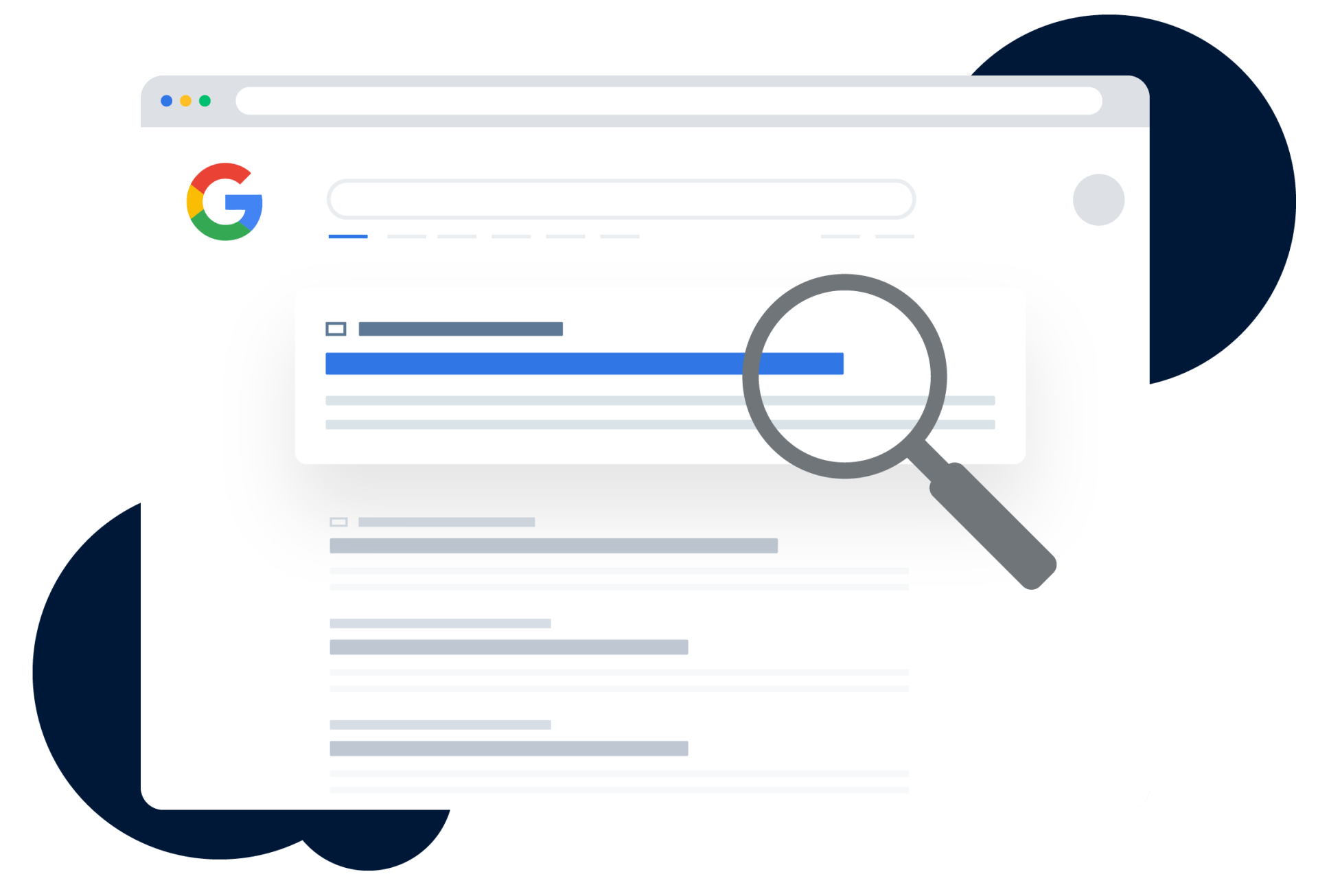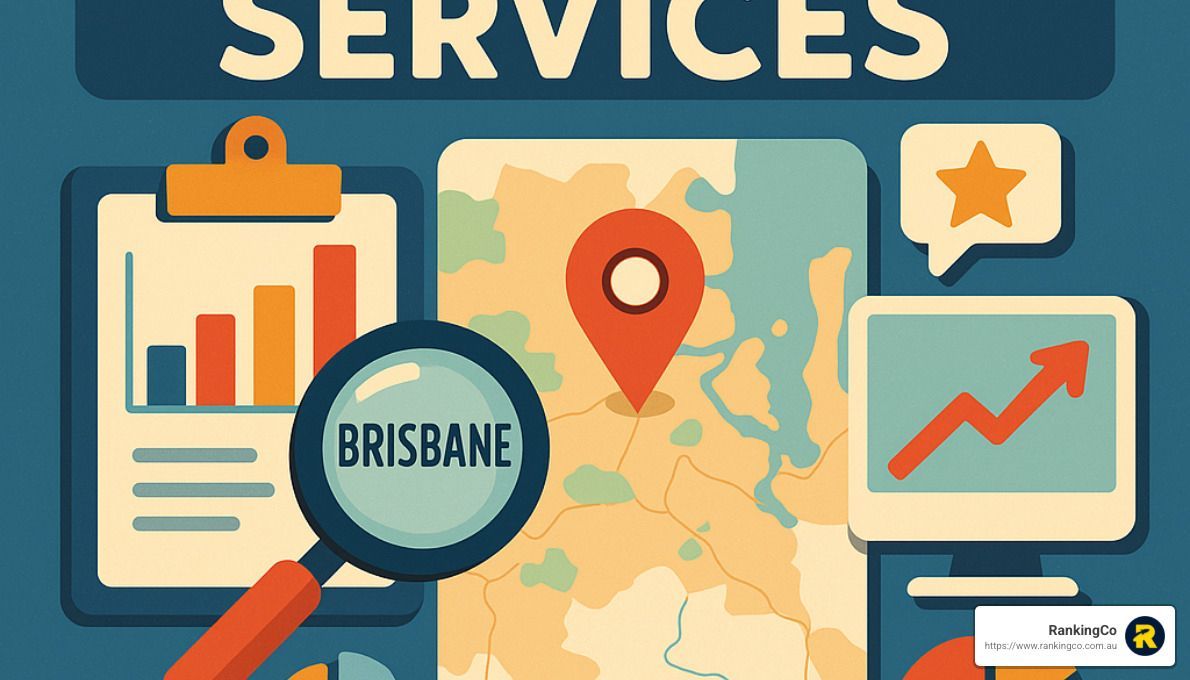Stay on Top: How to Track Your Keyword Rankings
Find keyword ranking is crucial for boosting your online visibility and SEO performance. Tracking keywords helps businesses ensure they're visible to potential customers searching for products or services like theirs. This introduces a competitive edge over others who aren't keeping tabs on their keyword performance. If you're in a hurry to improve your business's online presence, here’s a quick answer:
- Use SEO tools like Google Search Console or Semrush.
- Manually check rankings using search engines in incognito mode.
- Regularly update and optimise your content.
Monitoring these rankings not only keeps your business visible in local searches but also helps fine-tune your SEO strategies to outshine competitors.
As Kerry Anderson, co-founder of RankingCo with over 15 years of experience in digital marketing, I've consistently found keyword ranking to be key in enhancing SEO outcomes. Using my expertise in data analytics and search engine algorithms, I'll guide you through efficiently managing your keyword ranks.
Why Track Your Keyword Rankings
Tracking your keyword rankings is essential for understanding your SEO performance. It tells you which strategies are working and which ones need adjustment. When your content consistently ranks high, it means your efforts are paying off. More importantly, it ensures that you're reaching your target audience effectively.
Competitor analysis is another critical reason to keep tabs on your keyword rankings. By knowing where you stand compared to your competitors, you can identify opportunities and threats. If your competitors are outranking you, it's a sign to re-evaluate your strategy. On the flip side, if you're ahead, you can focus on maintaining your lead.
ROI measurement is directly tied to keyword rankings. Higher rankings often lead to increased website traffic, conversions, and ultimately, revenue. By analysing which keywords drive the most traffic and conversions, you can make informed decisions about where to focus your resources. This kind of analysis ensures you're getting the best return on investment for your SEO efforts.
In summary, tracking your keyword rankings gives you a clear picture of your online visibility and competitiveness. It helps you fine-tune your strategies to achieve better results and maximise your SEO investment.
Methods to Find Keyword Ranking
Finding your keyword ranking is crucial for maintaining and improving your SEO strategy. There are several methods to help you achieve this, ranging from using advanced SEO tools to more traditional manual approaches. Let's explore these methods.
Using SEO Tools
SEO tools are a popular choice for tracking keyword rankings due to their efficiency and comprehensive data. Tools like Ahrefs provide a wealth of information, such as search volume, ranking position, and keyword difficulty. This makes it easier to monitor your keyword performance over time. Ahrefs, for example, allows you to track up to 10,000 keywords and compare your rankings against competitors'. This kind of data is invaluable for identifying trends and making strategic decisions.
Another advantage of using SEO tools is their ability to track rankings at a local level, such as in Brisbane, QLD, Australia. This is especially useful if your business targets specific geographic areas. By understanding local search trends, you can tailor your content to better meet the needs of your audience.
Manual Method
The manual method involves checking search engine results pages (SERPs) by entering your target keywords into a search engine. To get the most accurate results, use an Incognito or Private mode in your browser. This prevents your search history from influencing the results, giving you an unbiased view of where your website stands.
While this method can be time-consuming, it's a cost-effective option for those with a limited budget or a small number of keywords to track. It's also a great way to get a snapshot of your competitors' positions for the same keywords.
Google Search Console
Google Search Console (GSC) is a free tool that provides insights into your website's performance on Google Search. To use it for keyword ranking, you'll first need to set up your site within GSC. After collecting data for about 30 days, you can access the "Search results" section under "Performance." Here, you'll find information about your site's average position for specific search terms.
GSC also allows you to compare your rankings over different time periods, helping you track improvements or declines. Although it may not offer as much detail as paid tools, GSC is an excellent starting point for businesses new to SEO or those on a tight budget.
In conclusion, whether you choose to use SEO tools, the manual method, or Google Search Console, each option has its own benefits. The key is to find the method that best fits your needs and budget, ensuring you stay informed about your keyword rankings and can make the necessary adjustments to your SEO strategy.
Using SEO Tools for Tracking
When it comes to tracking keyword rankings, SEO tools are indispensable. They offer detailed insights and save you time. Let's explore some of the top tools available.
Semrush
Semrush is a powerful tool that provides comprehensive data on keyword rankings. It helps you keep an eye on your website's performance in both organic and paid searches. One of its standout features is the Position Tracking tool. This tool allows you to monitor your domain’s rankings and compare them with your competitors’. You can track keywords across different search engines, locations, and devices, giving you a well-rounded view of your SEO landscape.
With Semrush, you can also spot changes in your rankings over time. This information is crucial for understanding the impact of your SEO efforts and any algorithm updates from Google. The tool’s user-friendly interface makes it easy to digest complex data, helping you make informed decisions about your SEO strategy.
Position Tracking
The Position Tracking feature in Semrush is particularly useful for businesses targeting specific regions, like Brisbane, QLD, Australia. You can see how your keywords rank in your target area and adjust your strategies accordingly.
Position Tracking also allows you to set up alerts for significant ranking changes, ensuring you’re always in the loop. This means you can react quickly to any shifts in the search landscape, keeping your SEO strategy agile and effective.
Keyword Rank Checker
The Keyword Rank Checker in Semrush is another essential tool for tracking keyword performance. It shows you the search terms your website ranks for and their positions in Google’s organic results. This tool is not just about your own site; you can also analyze competitors’ websites to find potential keywords you might be missing.
The Keyword Rank Checker provides valuable metrics like search volume, keyword difficulty, and traffic estimates. These insights help you identify which keywords are driving the most traffic and which ones need more attention. By focusing on high-performing keywords, you can optimize your content and improve your site’s visibility.
Using these SEO tools, you can stay ahead in the competitive online space. They provide the data you need to refine your strategies and boost your search engine rankings.
Manual Method for Tracking
If you prefer a hands-on approach, the manual method is a straightforward way to check your keyword rankings. This involves directly searching for your keywords on Google and analyzing the Search Engine Results Pages (SERPs). While this method doesn't offer the depth of SEO tools, it can still provide valuable insights.
SERPs Analysis
When you perform a search, you’re essentially looking at the SERPs. These are the pages that display the results of your search query. Analyzing SERPs can help you understand where your website stands in relation to specific keywords.
However, keep in mind that the results you see can be influenced by several factors like your location, search history, and even the time of day. This is why using Incognito mode is crucial for obtaining unbiased results.
Incognito Mode
To get the most accurate picture of your keyword rankings, use your browser's Incognito or Private mode. This mode prevents Google from using your search history to tailor the results, giving you a more neutral view of the SERPs.
Here's how to do it:
- Open a new Incognito or Private window in your web browser.
- Enter the keyword you want to track.
- Note your website's position in the SERPs.
For example, if you're tracking the keyword "backlinks," search for it in Incognito mode. You might find that your site appears in a different position compared to a regular search. This difference highlights the impact of personalised search results.
Unbiased Results
Using Incognito mode ensures that your findings are as unbiased as possible. This method helps eliminate the influence of past searches, location, and other personal factors on the search results.
While this manual method is useful for a small number of keywords, it can be time-consuming if you have a larger list to track. In such cases, using tools like Google Search Console or other dedicated SEO platforms can be more efficient.
By understanding how to manually check your rankings, you gain a clearer perspective on your site’s visibility. It's a simple yet effective way to stay informed about your SEO performance.
Next, we'll explore how to find keyword ranking using Google Search Console, a free and powerful tool for tracking your site's performance.
How to Find Keyword Ranking with Google Search Console
Google Search Console (GSC) is a fantastic, free tool for tracking your keyword rankings. If you haven't set it up yet, here's how you can get started:
Setup
- Sign in to GSC: Visit the Google Search Console website and sign in with your Google account.
- Add Your Website: Click on "Start now" and enter your website URL. Choose the correct property type, either Domain or URL prefix, and follow the verification steps. Verification ensures you own the website.
- Wait for Data: Once set up, you'll need to wait around 30 days to gather enough data for meaningful insights.
Search Results
After setting up, steer to the Performance section in GSC. Here, you'll see a snapshot of how your site is performing on Google.
- Queries: This section shows the keywords people use to find your site. It's your first stop to find keyword ranking data.
- Clicks and Impressions: These metrics reveal how often your site appears in search results and how often users click through to your site.
Average Position
To get more specific, look at the Average Position metric. This tells you the average rank of your website for a particular keyword over a selected time period.
- Viewing Average Position: Click on the "Average position" metric to see where your site ranks for specific keywords. This is an aggregate figure that gives you a general idea of your visibility.
- Keyword Details: Scroll down to the Queries table to see individual keywords and their average positions. Click on a keyword, like "content writing," to see its ranking history over the past three months.
- Date Range: Adjust the date range to see how your rankings have changed over time. You can even compare different periods to track improvements or declines.
Using Google Search Console is a straightforward way to find keyword ranking for your site. It provides a clear view of how your site is doing in search results and helps you focus on areas that need improvement.
Next, we'll dive into content optimisation techniques to boost your rankings further.
Content Optimisation for Better Rankings
Improving your content is key to boosting your keyword rankings. Let's break down the essentials: content quality, keyword relevance, and search intent.
Content Quality
High-quality content is crucial. Google favours pages that are well-written and provide value to users. Avoid "thin" content that offers little information. Instead, aim for engaging and informative content that answers your audience's questions.
Tip: Keep your content concise and to the point. Use bullet points and headings to make it easy to read.
Avoid keyword stuffing. Overloading your content with keywords can hurt readability and make your site less attractive to visitors. Focus on natural integration of keywords within your content.
Keyword Relevance
Your content must align with the keywords you're targeting. If your page is about "best laptops for gaming," ensure it includes relevant information like reviews, specs, and recommendations about gaming laptops.
Example: If someone searches for "best gaming laptops," and your page talks about general computers, there's a disconnect. Make sure your content matches what users are looking for.
Use tools like Semrush to understand keyword relevance. They can show you how your keywords align with user queries.
Search Intent
Understanding search intent is vital. This means knowing what users expect to find when they search a keyword. There are four main types of search intent:
- Informational: Users want to learn something.
- Navigational: Users are looking for a specific site.
- Transactional: Users want to buy something.
- Commercial: Users are researching products to buy later.
Example: If a user searches "buy gaming laptop," they have a transactional intent. Your content should focus on product listings and purchase options.
To determine search intent, examine the top results for your target keywords. This can give you insight into what users expect to find.
By focusing on content quality, keyword relevance, and search intent, you can improve your site's rankings and provide a better experience for your visitors.
In the next section, we'll answer some frequently asked questions about tracking keyword rankings to help you refine your strategy even further.
Frequently Asked Questions about Tracking Keyword Rankings
How to find keyword ranking in Google?
Finding your keyword ranking on Google is essential for understanding your site's performance. To check your ranking, you'll need to focus on the specific keywords and domain you are interested in.
Using tools like Google Search Console or Semrush, you can easily track where your keywords appear in search results. These tools provide detailed reports showing your site's position for each keyword.
To start, enter your domain into the tool and select the keywords you want to track. The tool will then display your current rankings and any changes over time.
How do I find the right keywords to rank?
Finding the right keywords is crucial to improving your visibility. Start by identifying potential topics that are relevant to your audience. Once you have a list of topics, use tools like Semrush to find related keywords.
Look at the monthly search volume for each keyword to gauge its popularity. High search volume keywords can drive more traffic, but they often come with higher competition. It's a balance between finding keywords that are popular and those that you can realistically rank for.
Consider the search intent behind each keyword. This will help you choose keywords that align with what users are looking for, increasing the chances of ranking higher.
What is the tool to check keyword ranking?
Several tools can help you track your keyword rankings, but Semrush is one of the most comprehensive. Its Position Tracking feature allows you to monitor your rankings across different search engines and locations.
With Semrush, you can see how your keywords perform over time and compare your visibility to competitors. It also provides insights into which keywords are driving traffic to your site.
Using these tools, you can refine your strategy and focus on the keywords that matter most to your business.
In the next section, we'll explore how to use Google Search Console to find your keyword rankings and optimise your content further.
Take Your Brand to New Heights with a Google Premier Partner
For team of experts here at RankingCo understands that tracking keyword rankings is a vital part of your SEO strategy.
Our expertise in local SEO ensures that small businesses can compete effectively in their local markets. By optimising your online presence, we help you reach more customers in your area, making your business more visible to those who matter most.
Our approach is bolstered by advanced AI technologies that provide a cutting-edge advantage. These technologies allow us to accurately analyse market trends and craft strategies that keep up with the digital landscape. With AI, we can predict changes and adapt quickly, ensuring that your SEO efforts are always a step ahead.
By integrating these advanced techniques, we not only help you find keyword rankings but also improve them. From understanding search intent to ensuring content quality, our comprehensive services cover all aspects of SEO. This commitment to excellence ensures that your business not only ranks but thrives online.
If you're ready to boost your local visibility and harness the power of AI-driven SEO, explore our SEO services at RankingCo!
Let's take your business to new heights together.















